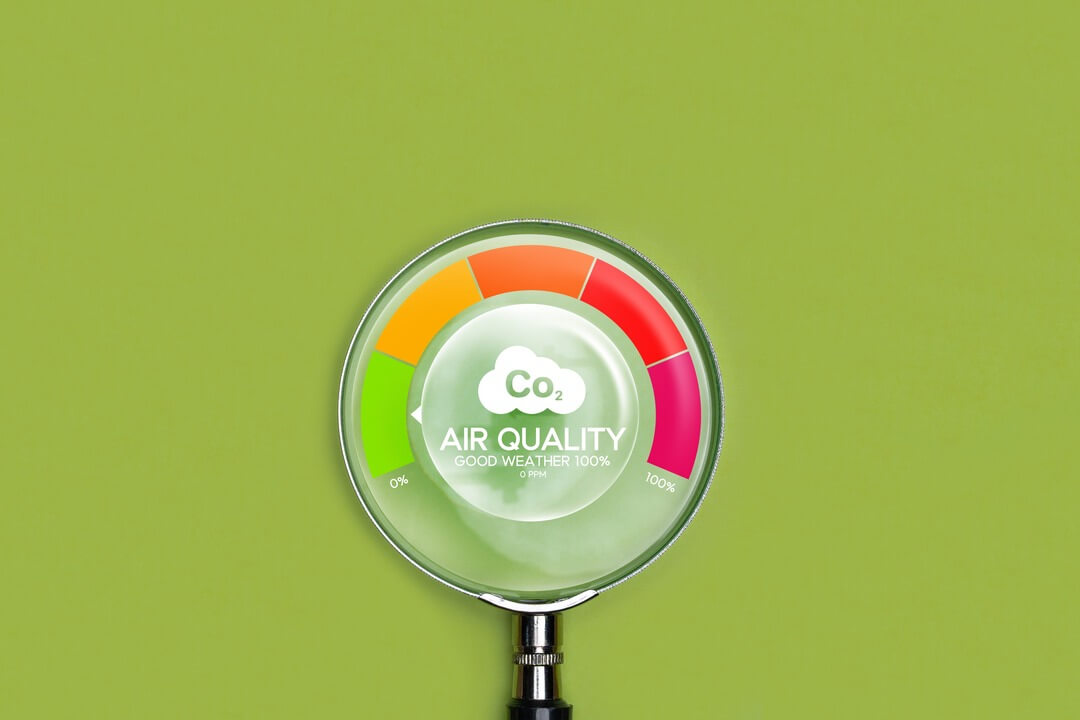Partnership advances air quality forecasting and environmental science in Saudi Arabia

The collaboration between KAUST and the National Center for Environmental Compliance (NCEC) is expanding to meet the growing research demands for addressing critical environmental challenges. Dr. Mohamed Abdelkader, NCEC’s air quality modeling expert, emphasized that this partnership is vital for managing air quality emergencies across the Kingdom.
“We are preparing to collaborate on multiple projects aimed at solving specific environmental challenges that require high-quality data and expert analysis, such as air quality forecasting,” he said, highlighted recent joint efforts between KAUST and the NCEC to develop an advanced forecasting system for Saudi Arabia. “We plan to leverage KAUST’s Shaheen III supercomputer to provide highly accurate air quality forecasts across the country.”
Another proposed project focuses on ensuring the reliability of NCEC’s communication systems for the secure transfer of air quality data over the national network, particularly in areas where traditional methods fall short.
The NCEC monitors air quality across Saudi Arabia by operating a network of 240 air-quality monitoring stations, collecting satellite data, and conducting emission and environmental impact assessments. The Center plays a critical role in supporting national projects, informing public health, and providing vital data for strategic planning. Abdelkader emphasized that KAUST’s contribution strengthens NCEC’s capabilities.
“By leveraging KAUST’s laboratories and scientific expertise, we can avoid duplicating resources and apply cutting-edge research to solve real-world environmental problems to enhance expenditure efficiency. This partnership is a model for how research institutions and government agencies can collaborate to create effective, sustainable solutions for the future.”
As a KAUST alumnus himself, Abdelkader previously worked on developing a model for volcanic ash interactions with stratospheric chemistry (2017–2023). He credited his KAUST experience for paving his path to his current role and stressed KAUST’s importance in producing national scientific talent.
“The University’s emphasis on interdisciplinary research and state-of-the-art laboratories is critical for addressing environmental challenges on a national scale. If Saudi Arabia aspires to lead in environmental science and technology, we must cultivate top-tier talent — and KAUST plays an essential role in that endeavor.”
Impactful ACAP conference
During the recent KAUST Research Conference: Atmospheric Chemistry and Air Pollution (ACAP), Abdelkader presented the National Air Quality Management Program, which coordinates all air quality activities in Saudi Arabia under one comprehensive framework — from network management and data processing to emergency response, scientific research, and strategic planning.
The conference provided Abdelkader valuable opportunities to connect with scientists from KAUST and around the world, while also showcasing NCEC’s leadership in air quality monitoring and its ambitious plans. He said: “This was a great opportunity to highlight the Kingdom’s efforts in air quality monitoring and management, and to demonstrate how KAUST can play a vital role in supporting these initiatives, especially in research and technological development.”
Reinforcing the importance of this work, Professor Chak Chan, Dean of Physical Science and Engineering at KAUST, Chair of the conference, noted that people can choose the water they drink, but not the air they breathe. He said air quality is vital to achieving Saudi Vision 2030 pollution-reduction goals and ensuring long-term environmental sustainability — a driving force behind KAUST’s research approach. “We want to be a catalyst for economic development and social prosperity for the Kingdom and the world.”
During the conference, Chan highlighted KAUST’s work on the impacts of biomass burning — a major source of atmospheric pollutants expected to increase with global climate change. He explained how this practice can facilitate chemical reactions, particularly in forming sulfate from sulfur dioxide. Understanding these processes is key for assessing air quality and informing strategies to mitigate pollution and its health effects.
“Overall, we like to identify and quantify the different sources and different ways to form certain atmospheric pollutants, so that we can better inform policymakers on strategies in improving air quality.”
Collaborative to the core
Bioscience Professor Imed Gallouzi, Chair of the KAUST Center of Excellence for Smart Health, said that he is working with Chan and other KAUST colleagues to understand how environmental pollutants, including air pollution, impact cellular and molecular processes — particularly gene expression and stress responses.
Gallouzi’s own research explores how prolonged pollutant exposure influences cellular behavior, including the role of senescent cells in secreting harmful molecules. He said KAUST aims to develop more accurate methods to study real-world pollutant exposure using advanced technologies, ultimately contributing to a better understanding of pollution’s effects on public health. “It’s a full, comprehensive concept. To do this, we need to be interdisciplinary.”
KAUST is well positioned to exert academic leadership in air quality research in the region. Abdelkader sees even broader opportunities for future KAUST-NCEC collaborations, including research into the biological impacts of aerosols on human health — an area of growing concern both within Saudi Arabia and globally.
“Additionally, we have collaborated with KAUST researchers on coastal area monitoring and water pollution assessment,” he added. “This wide-ranging collaboration across air, water, and soil shows that our partnership with KAUST is not confined to one field but spans multiple dimensions of environmental science.”

